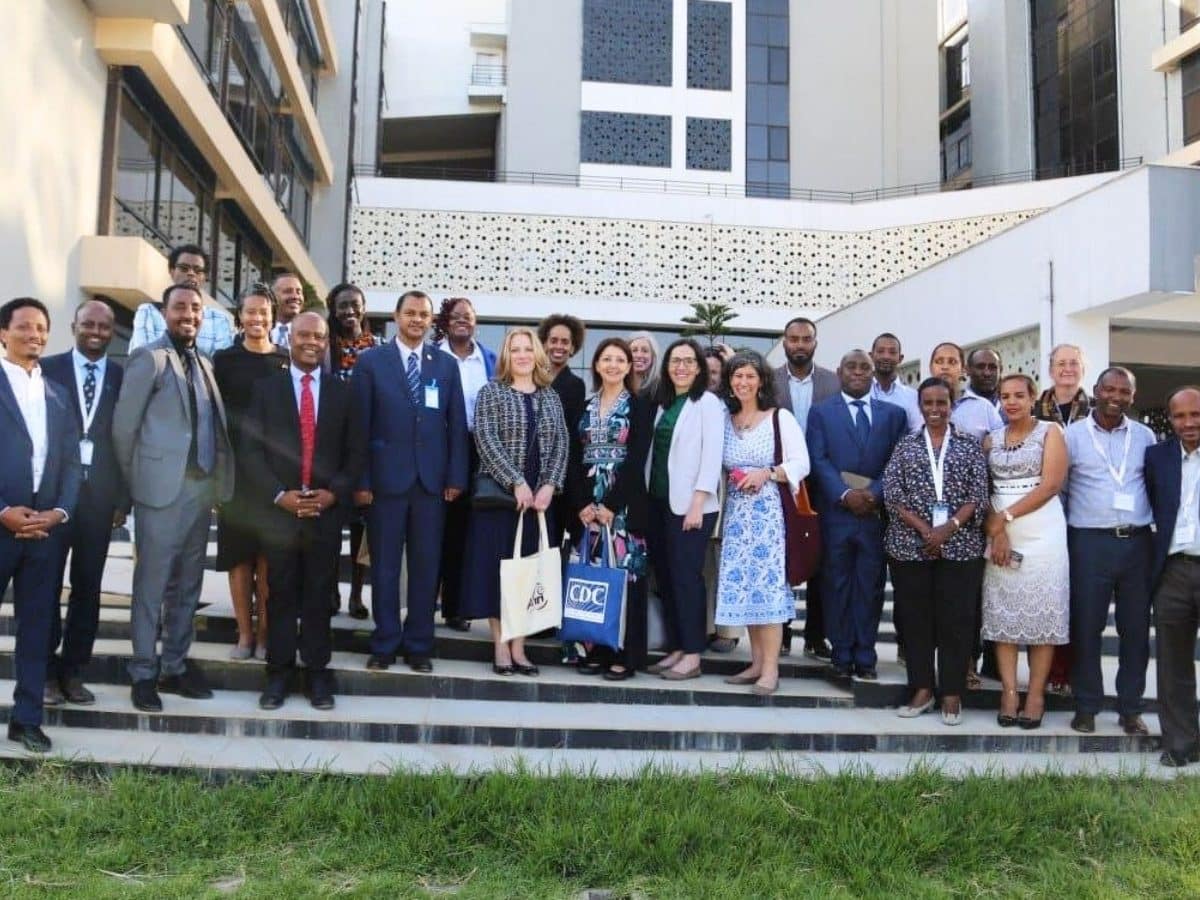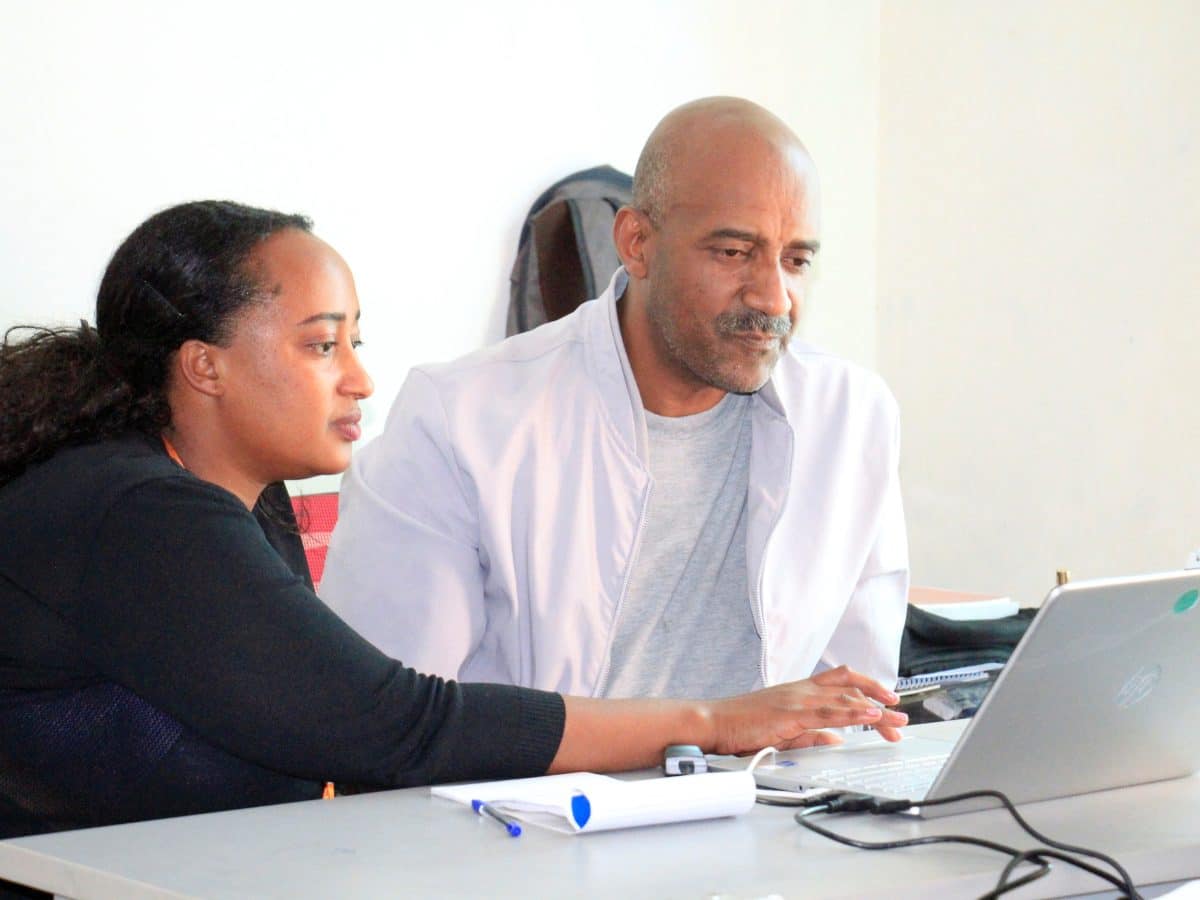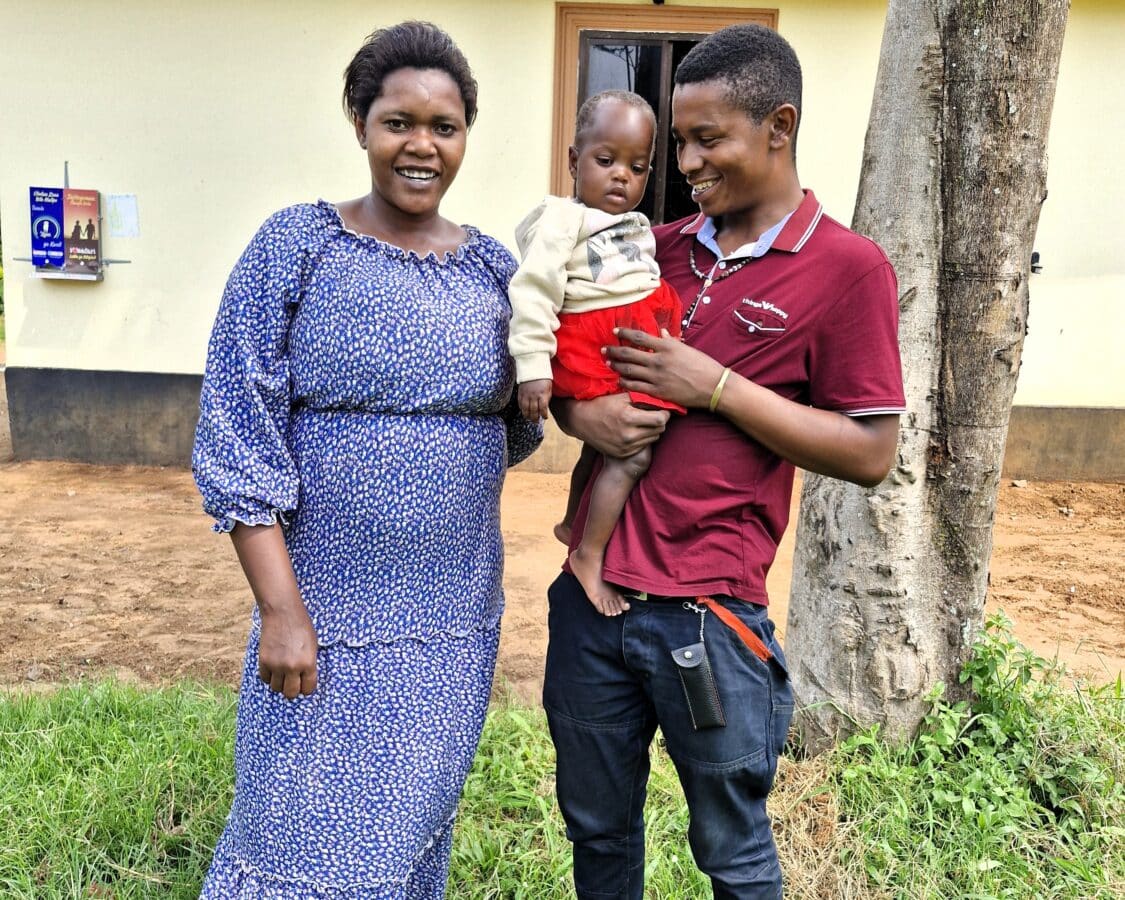Each year, World TB Day is recognized on March 24—the date marks the discovery of the germ that causes Tuberculosis (TB). Despite significant advances in TB prevention, screening and treatment, the disease remains a major global health threat. In 2011, an estimated 1.4 million people died from TB, mostly in resource-limited countries. The diagnosis and treatment of TB is especially important among populations with high rates of HIV. Developing programs that address TB-related issues is a key component of comprehensive HIV care.
At Mafeteng District Hospital in Lesotho, Sekautu, an HIV positive tuberculosis (TB) patient sits in an exam room with his wife. He explains that he first came to the clinic when he started coughing, but did not know about TB before he was diagnosed. “I am feeling much better,” Sekautu says. “Seeing people in the community who are tested for TB and receiving health talks here at the clinic helps me take my medication. ICAP provides counseling to keep me on the right track. I am able to get HIV treatment in the same place, which helps me take care of myself.”
ICAP support at Mafeteng Hospital includes training for health care workers to provide comprehensive screening, diagnosis, care, and treatment of TB and TB/HIV co-infection. Activities at the hospital highlight the role of household contacts or “treatment supporters” in adhering to and completing TB treatment. TB requires a course of treatment lasting six to nine months, and frequent co-infection with HIV makes adherence to medication even more difficult. Sekautu describes the role of his wife as a treatment supporter, “I do not think I would be able to stay on treatment without her. She reminds the rest of the family and me about ways to stop others from getting TB at home and she comes with me to the clinic. She also reminds me to take my medicines so that I do not miss taking the pills.”
In addition to its work at Mafeteng Hospital, ICAP is initiating work to enhance TB case detection in Lesotho with support from the Secretariat of the STOP TB Partnership’s TB REACH Initiative. The project seeks to rapidly implement innovative interventions to increase TB diagnoses and successful treatment among Basotho miners and their families in the border districts of Maseru, Mafeteng, and Leribe. ICAP is implementing the project in collaboration with the Lesotho Ministry of Health National TB Program and the Employment Bureau of Africa.
The REACH project, through collaboration and partnerships with government and other agencies, includes training and support for health care workers to provide TB health education and to screen, diagnose, and treat miners quickly and effectively. Activities also include the enhancement of laboratory tools and equipment and the development of resources to ensure timely monitoring, evaluation, and reporting of TB within the districts.
The REACH program expects that over one million new TB cases will be detected and treated as a result of program implementation.








